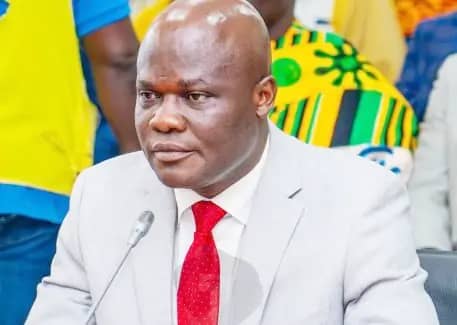The Ghanaian government, under the leadership of President John Dramani Mahama, is embarking on a significant reform of its local governance structure, shifting the selection process for Metropolitan, Municipal, and District Chief Executives (MMDCEs) from presidential appointments to public elections. This transformative change, spearheaded by the Constitutional Review Committee, aims to enhance local democracy by empowering citizens to directly choose their representatives. The current cohort of MMDCEs, appointed by President Mahama, will be the last to assume office through this method. Following the Committee’s submission of its report to the President, a national referendum will be conducted to formally amend the constitution and pave the way for the electoral process. This move signifies a major step towards greater decentralization and community involvement in local governance.
Minister for Local Government, Chieftaincy and Religious Affairs, Ahmed Ibrahim, who also represents the Banda Constituency in Parliament on the ticket of the ruling National Democratic Congress (NDC), announced this landmark decision. Highlighting President Mahama’s commitment to empowering local communities, Minister Ibrahim emphasized the importance of citizen participation in shaping their local leadership. This shift aligns with the broader goals of strengthening local government structures and fostering greater accountability and responsiveness to the needs of the people. The transition to elected MMDCEs represents a fundamental shift in power dynamics, placing the responsibility of selecting local leaders directly in the hands of the electorate.
The Ministry for Local Government, Chieftaincy and Religious Affairs operates on three interconnected pillars: bolstering local government institutions, fostering collaboration with traditional chieftaincy institutions, and engaging constructively with religious organizations. This multifaceted approach recognizes the importance of integrating traditional and religious structures within the framework of modern governance. By working closely with these influential bodies, the Ministry aims to create a more unified and cohesive approach to addressing community concerns and advancing development initiatives at the local level. This collaborative approach aims to harness the deep-rooted influence of these institutions to drive positive change and promote community participation.
One notable initiative under the Ministry’s purview is the planned establishment of specialized sanitation courts. President Mahama has committed to the creation of these courts, empowering traditional chiefs to preside over local sanitation disputes and enforce sanitation regulations within their communities. This initiative underscores the government’s commitment to addressing sanitation challenges by incorporating traditional authorities into the enforcement mechanism. By giving chiefs a direct role in sanitation management, the government aims to leverage their authority and proximity to communities to achieve tangible improvements in public health and environmental cleanliness.
The focus on sanitation extends beyond legal frameworks, with the Ministry emphasizing community involvement as crucial to resolving Ghana’s persistent sanitation challenges. Minister Ibrahim urged traditional leaders and the general public to actively participate in the National Sanitation Day campaign, a nationwide initiative designed to promote collective responsibility for maintaining clean and hygienic environments. The campaign highlights the importance of shared responsibility in addressing sanitation issues, emphasizing community participation as a key factor in effecting lasting change. By mobilizing communities to take ownership of their local environment, the government aims to foster a culture of cleanliness and improve public health outcomes.
The upcoming constitutional amendment and shift to elected MMDCEs mark a significant evolution in Ghana’s local governance landscape. This transition underscores the government’s commitment to strengthening local democracy and empowering communities to play a more direct role in shaping their future. By integrating traditional authorities into the governance framework and promoting active citizen participation through initiatives like the National Sanitation Day campaign, the government aims to create a more inclusive and effective system of local governance. The planned sanitation courts further demonstrate this commitment, providing chiefs with the authority to address local sanitation issues directly, while the broader emphasis on community involvement underscores the importance of collective action in tackling these challenges. These reforms are expected to foster greater accountability, responsiveness and citizen engagement in local governance, ultimately contributing to the development and well-being of communities across Ghana.














